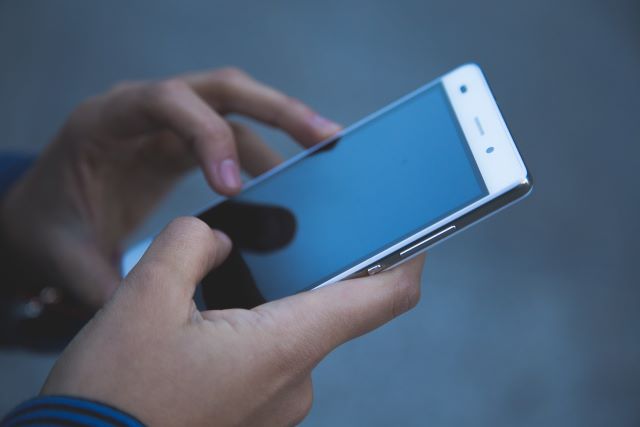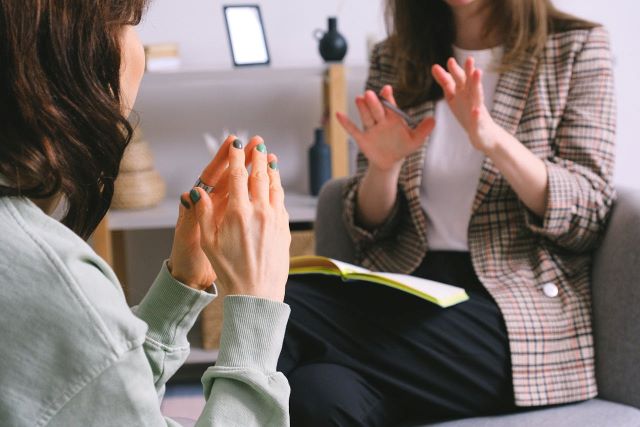Feeling anxious or worried about things such as your health, finances, marriage, work, or the future is very common. In fact, millions of people worldwide are affected by anxiety, and women are twice as likely to experience it.
These life issues may make you feel on edge or panicky, fear the worst, have difficulty concentrating, and feel irritable.
This is natural and a normal part of most of our lives.
Interestingly, anxiety can also benefit you:
- It can motivate you to find solutions for your issues
- Help you stay focused
- Make you aware of risks
However, it becomes a problem when it starts affecting your daily activities. You may then experience more serious physical symptoms like restlessness, pins and needles in your hands and feet, shortness of breath, and heart palpitations.
In this article, you will find seven proven techniques for quick relief of your anxiety, as well as long-term solutions. Building these into your daily routine will help you say goodbye to anxiety.
3 Immediate Tips to Reduce Anxiety
1. Deep Breathing
Slow, deep breathing is an effective and efficient way to manage anxiety, and you should never underestimate its power. All the systems in your body rely on oxygen.
When you feel anxious and experience excessive or irregular breathing, it may lead to symptoms such as chest tightness and pins and needles.
This condition can be addressed by continuous slow, deep breathing for at least five minutes. Doing this will calm your nervous system and help alleviate anxiety. Additionally, it will address the physiological changes in your body, like lowering your blood pressure and heart rate.
Follow this simple deep breathing exercise:
- Slowly inhale through your nose while counting to four.
- Slowly exhale through your mouth while counting to six.
You can repeat this exercise as often as possible throughout the day to keep your body in a relaxed state.

Mindfulness and Meditation
Meditation means training your mind and thoughts to achieve a mental state of calmness and positive emotions. Mindfulness is one of the most popular meditation techniques.
Practicing mindfulness and meditation can further improve your emotional regulation, calm you down, and make you more resilient.
You can start by tuning into the object of your anxiety and focusing on the present moment. Observe these emotions, note them, and let them go.
Once you’ve cleared your anxious thoughts, replace these thoughts with positive phrases like “I can do this!”. Another way to practice mindfulness is through music. Listen to your favorite songs and focus on the positive emotions they elicit.
Additionally, you can meditate on religious verses. This practice will centre you on your creator, allowing their truth to penetrate your heart and mind.
Phone a Friend
Social support can play a key role in assisting you on your journey. Sharing your feelings and thoughts with a trusted friend can help you clarify how you feel, providing you with a new perspective on your circumstances.
Moreover, sharing your feelings with an empathetic friend will deepen your bond with them and further help reduce your anxiety. If you’re uncomfortable sharing with a friend, try journalling or making art to express your thoughts and feelings.

4 Long-Term Tips to Manage Anxiety
After you’ve applied these quick fixes, you can continue with the long-term solutions toward saying goodbye to your anxiety.
1. Be physically active
Physical activity is not just for your body; your emotions love it, too. When you exercise, your body releases endorphins, also known as feel-good hormones, which will give you the “runner’s high”.
You should aim for at least 30 minutes of aerobic exercise most days of the week. This could be walking, jogging, or cycling – anything that gets your heart pumping a bit faster.
Regular physical activity also enhances sleep quality, supporting your memory and removing toxins from your brain – all crucial when you are struggling with anxiety.

2. Get Enough Sleep
A lack of sleep can have serious consequences on your body. These effects include:
- Damaged brain cells
- Increased stress
- Irritability
- Impaired judgment
- Poor concentration
- Prolonged fatigue
Aim for 6 to 8 hours of sleep per night to support your emotional well-being. Going to bed earlier is advantageous since an hour of sleep before midnight is equivalent to 2 hours of sleep after midnight. Therefore, try to sleep and wake earlier.
Minimize screen time at least an hour before bed, including computers or smartphones, watching TV, or playing video games. Turn all your screens off at least an hour before bedtime and keep them out of your bedroom.
Engaging in relaxing activities before bed, such as taking a warm bath, reading quietly, or drinking warm milk, can also wind you down and prepare for sleep.
3. Healthy eating habits
Try to maintain a regular eating schedule and a well-balanced diet, including the following:
- Plenty of vegetables and fruits
- Whole grains
- Low-fat dairy products
- Lean protein
- Healthy fats
Steer clear of processed and sugary foods to avoid fluctuations in blood sugar levels.
The following can also trigger or mimic anxiety symptoms:
- Low blood sugar levels
- Poor hydration
- Use of alcohol
- Caffeine
- Smoking
Ensure you drink at least 6-8 glasses of water daily to stay hydrated, as even mild dehydration can contribute to negative emotions.

4. Professional Help and Therapy
If you’ve been struggling with anxiety for two weeks or more, it’s vital to seek professional help. Your first step should be to schedule an appointment with a professional.
Failing to take this step may worsen your emotional well-being and could lead to physical health issues, such as high blood pressure.
There are many success stories about treatment options for anxiety, including cognitive behavioral therapy, medication, or a combination of both.
Cognitive behavioral therapy helps you alter unhelpful thinking patterns and identify anxiety triggers. It teaches you how to transform negative emotions into positive ones and equips you with coping mechanisms and skills to manage your emotions.
Another proven strategy for long-term anxiety relief is working with a life coach. A life coach can help you identify the root cause of your anxiety, develop tools to cope with stressful situations and find enjoyment in life.
You can contact Journey Life Coach for an appointment today!
Taking this crucial step will not only alleviate your symptoms but also enhance your relationships and life.

Conclusion
Incorporating these quick fixes and long-term solutions into your daily routine will help you to say goodbye to anxiety!
Keep in mind that every journey begins with a single step. As you take this first step, know that achieving emotional well-being requires patience and commitment.
Keep your eyes on the summit, and you will soon be able to relish the view from the top. Most importantly, always be kind to yourself!
RESOURCES
1 WORLD HEALTH ORGANISATION (WHO). 2023. Anxiety Disorders.
https://www.who.int/news-room/fact-sheets/detail/anxiety-disorders
2 Clevelandclinic.org/benefits-of-anxiety.
https://health.clevelandclinic.org/benefits-of-anxiety
3 Zacarro et al., 2018. How Breath-Control Can Change Your Life: A Systematic Review on Psycho-Physiological Correlates of Slow Breathing.
4 Hoffmann et al. The Effect of Mindfulness-Based Therapy on Anxiety and Depression: A Meta-Analytic Review. 2010. https://www.ncbi.nlm.nih.gov/pmc/articles/PMC2848393/
5 Koelsch. Investigating the Neural Encoding of Emotion with Music. 2018. Investigating the Neural Encoding of Emotion with Music – ScienceDirect
6 Acoba. Social support and mental health: the mediating role of perceived stress. 2024.
https://www.frontiersin.org/journals/psychology/articles/10.3389/fpsyg.2024.1330720/full
7 Ozbay et al. Social Support and Resilience to Stress. 2007. Social Support and Resilience to Stress – PMC (nih.gov)
8 Mercer, Warson & Zhao. Visual journaling: An intervention to influence stress, anxiety and affect levels in medical students. 2010.
https://www.sciencedirect.com/science/article/abs/pii/S0197455609001294
9 Anderson & Shivakumar. Effects of Exercise and Physical Activity on Anxiety. 2013.
https://www.ncbi.nlm.nih.gov/pmc/articles/PMC3632802
10 Staner A. Sleep and Anxiety disorders. 2003.
https://www.ncbi.nlm.nih.gov/pmc/articles/PMC3181635
11 Granero. Role of Nutrition and Diet on Healthy Mental State. 2022.
https://www.ncbi.nlm.nih.gov/pmc/articles/PMC8880234
12 Kaczkurkin & Foa. Cognitive-behavioral therapy for anxiety disorders: an update on the empirical evidence. 2015. https://www.ncbi.nlm.nih.gov/pmc/articles/PMC4610618/

